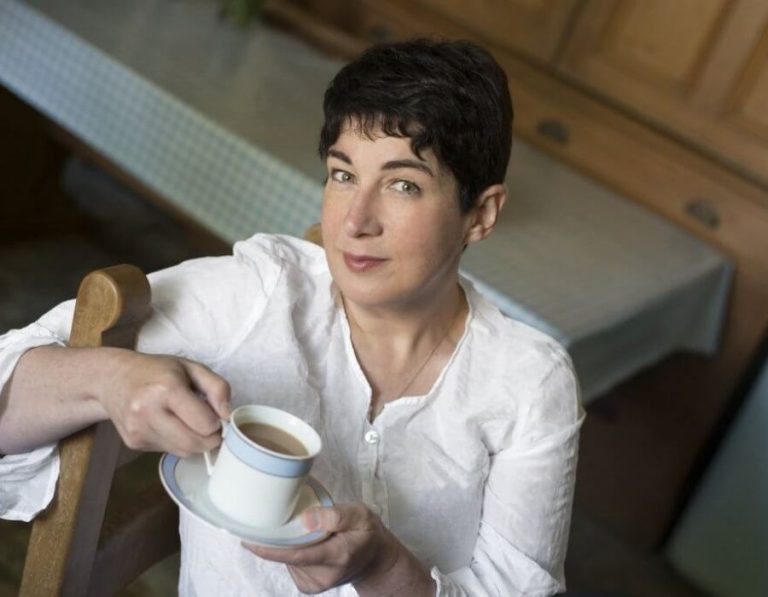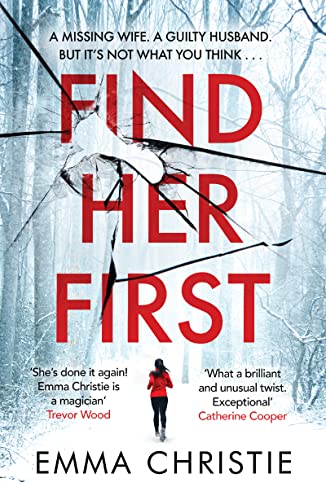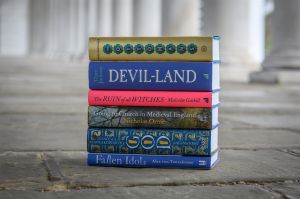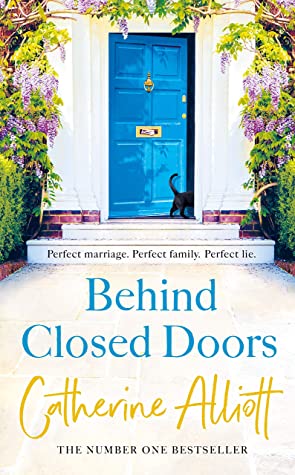
‘Always on the letters page,’ I heard her cry as I got out and patted Hector. He cringed and took up position behind me, very much staying outside for this one. ‘Which he knows is my favourite page. And then he trims his nasal hair on the arts reviews – and we all know the reason for that!’
1
I arrived at my parents’ house to find that, as usual, my sister had beaten me to it. As I crunched up the gravel drive to the crumbling red-brick farmhouse, I spotted Helena’s shiny blue BMW already parked squarely outside the gabled porch. The front door to the house was wide open. As I drew up beside her, Hector, my parents’ aged spaniel, came out to greet me, wagging his tail sheepishly. He turned to look apologetically at the rumpus coming from within. Voices were raised in anger. I could hear my mother’s shrill tones complaining that she could hardly be to blame for smashing a bowl she didn’t even know my father had won for school cricket seventy odd years ago if he insisted on cutting his toenails on her copy of the Daily Mail she hadn’t even read yet.Helena and I could. Part of the fabric of my parents’ marriage involved spectacular flirtation on my mother’s part which always went absolutely nowhere but amused my father no end.ABOUT THE AUTHOR‘Well, they might hate it to begin with, but they’d pretty soon get used to it.’‘You see?’ seethed Helena, lowering Mum on to the sofa. ‘This cannot be ignored any longer, Lucy.’‘That we’ll deal with it, and so we will. And I think you’ll find it was a china bowl rather than a cupboard full of glass, but thank you.’
He began picking up pieces of his bowl, not looking at either of us, and although defiant, I could see he was embarrassed.
She glanced regretfully over her shoulder as she went down the drive; back to the barn conversion next door, where once we’d kept hay for the horses. Pity we still didn’t, I thought, as I shut the door on her.
‘We couldn’t do without her,’ Helena reminded me tersely, as if my parents weren’t there, or were senile, which they weren’t.
‘Thank you, Mrs Cummings, it was very kind of you to ring us, but I think we can handle this now,’ Helena was saying, glancing at, but not greeting me. I didn’t greet them either, there didn’t seem much point. It was business as usual at Pope’s Farm, and to express upset or astonishment at the scene would be ridiculous. My parents had had another fight. My mother was worse the wear for drink and my father not far behind, but managing to seize the moral high ground on account of being far more of a functioning alcoholic than my mother. He had an air of practised bewilderment as he faced my mother, which naturally only served to stir the pot. Mum, slight and elegant in heels, her face red, fists clenched and quivering with rage, suddenly lunged at him. He ducked and she tottered and fell sideways – into a gleeful Mrs Cummings, who shrieked hysterically and sidestepped out of the way, rather unhelpfully, clutching her heart.
Helena and I forced tight smiles as Mum chortled, cheering up enormously. She patted her hair. ‘I can’t think what your father means.’
‘Yes, but they’re not children,’ she’d objected. Helena wanted them to act their age: to play canasta and watch My Fair Lady with other ‘moved on’ folk, and, a tiny bit of my brain wondered, let her get her hands on the house.
From the outside, anyone would think that Lucy Palmer has it all: loving children, a dashing husband and a gorgeous home.
‘Oh, it was splendid,’ my mother agreed. ‘Quite the highlight of my week.’
I sighed and made my way towards the fray. Ducking under the low beam of the front door, I saw the parquet floor of the hall was strewn with umbrellas and walking sticks which had clearly been thrown in anger from the wooden hat stand, upended on its side. In the sitting room beyond, my parents were squaring up to one another either side of the inglenook fireplace. The Persian carpet was covered with bits of broken china. Helena, looking pompous, was positioned between them, arms outstretched, palms up, like an Italian traffic cop. All she needed was white gloves and a whistle. Hovering to one side, eyes shining delightedly, was Mrs Cummings, the neighbour who’d summoned us.
Catherine Alliott is the author of fifteen bestselling novels including About Last Night, My Husband Next Door, A Rural Affair, One Day in May, The Secret Life of Evie Hamilton, and Wish You Were Here. She lives with her family in Hertfordshire.
My thanks to Sriya of Michael Joseph for the tour invitation.
I went to the kitchen for a dustpan and brush with Helena on my heels. ‘They’re both so pissed,’ she whispered in urgent tones as I opened the broom cupboard. ‘It has to stop.’
Is she ready to let someone in? Or will she leave the door to her past firmly closed . . .
EXTRACT
Publisher: Michael Joseph/Penguin
Available in ebook, audio, hardback (4 March 2021)
416 pages
___________________________________________
‘Yes, but with like-minded people who would shame them into behaving, don’t you see? Peer pressure and all that. And there’d be a warden.’
I went back to the sitting room and found my father settling Mum in her favourite armchair, propping her feet on a footstool, adjusting her cushions. She was reaching out for his hand in thanks, her pale blue eyes watery as she squeezed it. Daddy brushed aside her apologies for breaking his cricketing bowl, and as I swept the small pieces he’d missed, he bustled off to the drinks cupboard, muttering about getting her a little pick-me-up, and one for him too. For the nerves. I knew it was hopeless to suggest this was not the most sensible option, and even Helena only got as far as opening her mouth – and shutting it again. We sat on the sofa opposite, watching dejectedly as my old dad, tall, rake-thin, still elegant and suave at eighty-six in his whipcord trousers and starched shirt, handed my mother, equally thin, and beautifully dressed in ancient Chloé, a few stains on the skirt perhaps, lipstick askew and too much eye shadow, what looked like a bucket of neat gin.
As the truth of her marriage threatens to surface, Lucy seizes the opportunity to swap her house in London – and the stories it hides – for a rural escape to her parents’ farmhouse in the Chilterns.
ABOUT THE BOOK
‘I find a tabloid a more convenient size. And anyway, you don’t read it.’
‘Oh, I disagree, I think we should do quite well,’ objected my father. ‘When a long-married couple can’t have the most basic of conjugal rights, namely a flaming row, in the privacy of their own home, things have come to a pretty pass, as that wretched nosy parker would say.’
‘Why can’t you use your own paper? That’s what I want to know.’
‘And then, blow me down,’ she’d say around the lunch table in our youth, about some poor besotted admirer, ‘he made a terribly improper suggestion, after I’d simply agreed to help him choose some cushion covers in Beaconsfield!’ Whereupon Dad would roar with laughter. Somehow it didn’t feel quite so funny, these days. Dad, too, would still regale us with his conquests, but they were tamer in nature: the girl in the chemist who, in her quest for the right knee bandage, had asked him to roll up his trouser leg, to which he’d retorted, ‘Only if you will!’
‘Busybody,’ I muttered, going back into the sitting room. ‘She must have been listening in the garden, for crying out loud.’
‘Your mother’s got a new suitor,’ he told us confidentially, winking roguishly. ‘A retired endocrinologist, a professor, who’s moved to the village. He took us in his Bristol. Widowed, obviously, and of a rather earnest bent, but your mother worked her magic as usual.’
‘Well, I was only trying to help,’ she said rather huffily as I escorted her to the front door. ‘I wouldn’t want anyone to get hurt. And of course I did think of ringing social services when I heard the breaking glass, but you’ve always said—’
And nor were they alone. Mum and Dad still entertained on a regular basis, and many of their friends were in the same state. Nancy De Courcy, Mum’s BF and a fearsome, pony club mother in my youth, had passed out in her soup the other day apparently, whereupon everyone had chortled and agreed it was lucky it was gazpacho. So what? She’d been cleaned up, laid out on a sofa like a stiff according to my father, while the rest of the guests pushed on through. She even came round to enjoy a glass of Château d’Yquem with pudding, before being driven home together with husband Archie by a very nice chap who’d come to collect them. As I pointed out to Helena, if that was our children we’d think they’d behaved terribly responsibly.
But Lucy gets more than she bargained for when she moves back to her childhood home, especially when it throws her into the path of an old flame.
‘Thank you, Mrs Cummings,’ I repeated more firmly, glaring at my sister in a must-we-do-this-in-front-of-the- neighbours way. ‘We’ve got this covered now, but thank you for your call.’
It didn’t occur to me to wonder how Helena would go about achieving this, because I already knew. She wanted care: twenty-four-hour care, preferably, with my parents under close watch. All booze locked away, obviously, and presumably with some sort of armed guard. Sheltered Housing were words she used a lot, before getting out brochures for an over-seventies estate in Amersham, where residents had access to a pool, a spa, restaurants – and a range of bars, I’d pointed out last time she’d shown it to me.
But when her marriage to Michael comes to an abrupt and unexpected end, her life is turned upside down in a flash.
Author Links:
Goodreads| Amazon UK
Coming face-to-face with her mistakes, Lucy is forced to confront the secrets she’s been keeping from herself and those she loves.
This charm offensive to anyone deserving enlivened their days, and no doubt reminded them of younger ones. And let’s face it, there’s precious little charm about these days. It’s hardly crime of the century. But it was about all there was left, now. Because the awful truth was that Mum’s eyesight was deteriorating to such an extent that she was practically disabled – although God help us, she still drove – and any help came in the form of my father, who shielded and protected her, but who faced his own disabilities, with what he dismissively referred to as his gammy legs. How long could this situation go on?‘We had a marvellous time at the races the other day with the Montagues,’ he told us, settling into his own armchair, as if absolutely nothing had happened and Helena and I had just popped down for a social. ‘Didn’t we, darling?’
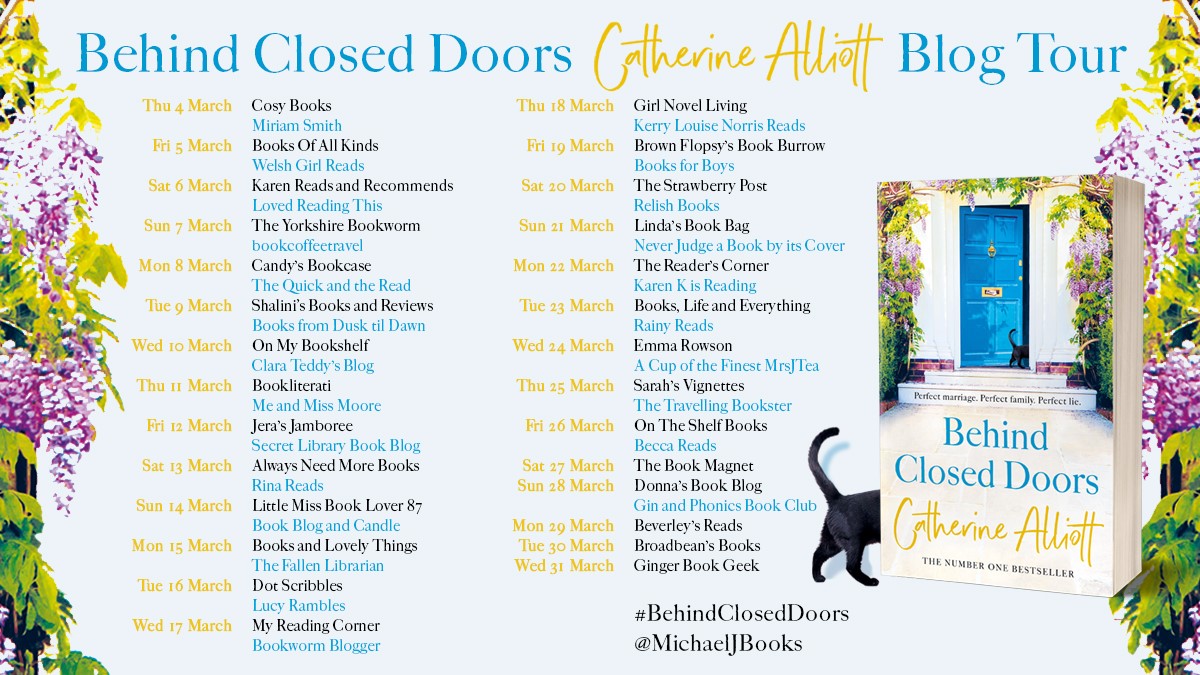
‘Like being back at school. Which they’d both hate,’ I’d told her. ‘And which they’d resist with every fibre of their being.’
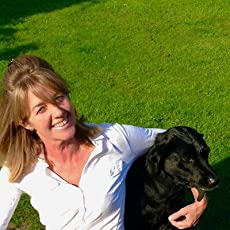
‘If you’re implying I shed my personal detritus over Lucy’s husband’s column for unattractive reasons, I call that poor form,’ my father’s voice rejoined mildly. I stiffened at my name.
Again, like boarding school: the first couple of terms utter misery, but thereafter, not too bad actually. And the final years decidedly jolly as one gained seniority, which, in my parents’ case, really would be the final term. The final curtain. As I gathered the dustpan and brush from the cupboard I wondered if she was right. My parents rattled around in this erstwhile farmhouse in leafy Buckinghamshire where Helena and I had grown up, and drank themselves to a standstill most nights. It could often end in tears, admittedly, but no bloodshed or genuine fisticuffs had occurred yet, and but for the noise of smashing china, was it really anyone’s business what they did with their own property if no one got hurt in the process?


